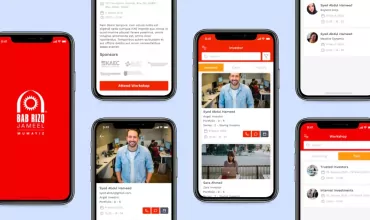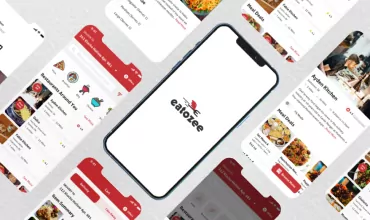The Impact of Smart Mobile Phones on the Future of Internet

Table of Contents
Over the years, web world has experienced tremendous make over. It has improved by leaps and bounds. In the recent past, it has been experiencing a significant transformation due to the success of smart mobile phones. Smartphone are the devices running on Android, iOS and other operating systems that are capturing the attention of web surfers. People are finding it more convenient to surf on their touch devices, rather than beating the keyboard for typing keywords.

In a recent survey, by analyst Mary Meeker, 45% of the users access web via smartphone and 35% through desktop PC’s. As a result, Windows has also witnessed a major downfall since, 1985. The noticeable thing is that, Android and iOS have achieved this in only 5 years, and they are still considered being in infancy.
What does it imply? Mobile is a huge phenomenon and is going to be even larger in the coming years. It will soon become the primary source of internet for the user. But the question is how did this happen? What it means for the internet as the number of people surfing the internet through smartphone is increasing in comparison to laptop and desktop.
Mobile internet is becoming the only internet
Tablets and smartphone are the hottest tech gadgets around. The figures about its growth and its growing importance among the people are astonishing. By next year according to Meeker, the number of smart gadgets will be more than the number of PC’s. This indicates that the maximum internet surfing in the future will come from mobile devices rather than laptops and desktops. On the basis of the data retrieved from Morgan Stanley, Meeker estimates, by 2015 almost 2.9 billion people will be using tablets and smartphone.
According to the last year stats from Meeker, she found around 10% of global internet access came from mobile devices. The new updates and stats show a tremendous growth from 10% to 13% within in a matter of few months. Moreover, it was observed that, among the children between the age group 6-12, 43% want and iPad and 36% want mini iPad. This implies that at least in United States, smartphone and tablets are the first choice for children.
But this varies significantly in comparison to other countries. For instance, in the US about 78% of people have internet access; this is the most as compared to other nations. In India, only 11% of the population has internet access. Half of the mobile users in the US possess smartphone, in India this is just 4%. To cut the long story short, developing countries like, China, India, Indonesia and Brazil are leading the shift towards mobile browsing.
How will the Internet transform?
But the question arises, is it going to have a profound impact on the way people consider internet with web shifts to mobile devices? Well the answer is yes, the rapid transformation of technology from desktops and laptops to mobile and tablets will definitely change the human perspective towards internet. Mobile technology and its applications will bridge mainstream internet experience.
What it means for the mainstream internet?
Sites may look like apps
As mobile devices are rapidly taking over, the desktop browser like, IE, Firefox, Chrome etc will decline. Mobile browsers are already capable and will continue to be in the future with the adoption of HTML5 and other next generation technologies. But mobile devices will not have the luxury of big screen as in desktops and laptops. This means that in order to be a successful website, it will need websites to function like a mobile app rather than pages with a collection of different links.
Apps may dominate
In the present scenario, mobile development is gaining popularity, and there will be a time in the future where, website development will be considered secondary. However experts believe that HTML5 is the future technology, but it has not flourished so far. If, HTML5 lags more than a year, then traditional website will be second class citizens. The focus of developers would shift on mobile apps development rather than web development.
Know the user
As the scope of presenting information on the mobile is less, it will result in user preference. This will force the organizations to tailor the information they present. The internet will become unusable unless the website knows who you are. Some service will establish their own identity but for most others will depend on Facebook, Amazon, Twitter, Apple, etc for digital identity credentials.
Navigation will be sidelined, and emphasis will be more on destination
Touch interfaces and smaller screen will also break down the navigation from site to the site and pages to pages. Web browsers were designed to enable users navigate quickly, but mobile internet experience will be more of a seamless application experience.
Weight shift
The transformation of mobile represents a shift towards a light asset rather than heavy asset lifestyle. More and more people are relying on cloud computing and mobile devices to do things. This eliminates the need of storing large volume of data and records to a great extent.
As an illustration, banks will purely become virtual institutions. Consumers will make transactions, store information and deal solely with their phones.
Conclusion
The above mentioned reasons may be compelling to consider, that mobile will rule the future. But coming to the conclusion about the future is a tricky business. The world economy can experience another transformation, Microsoft may bring in the next generation of PC with its Windows 8. Facebook might take the social networking to another level, or someone else may be designing and developing the technology for the future, that would turn the trends on its head. Anything can be expected, but it doesn’t matter how lucrative the toys are if hardly people could afford them.
But one thing is for sure, global consumers will prefer mobile as a primary device for computing. This implies that every service and businesses and person wanting to use the internet will think of a mobile first and then, PC if at all they consider PCs.



